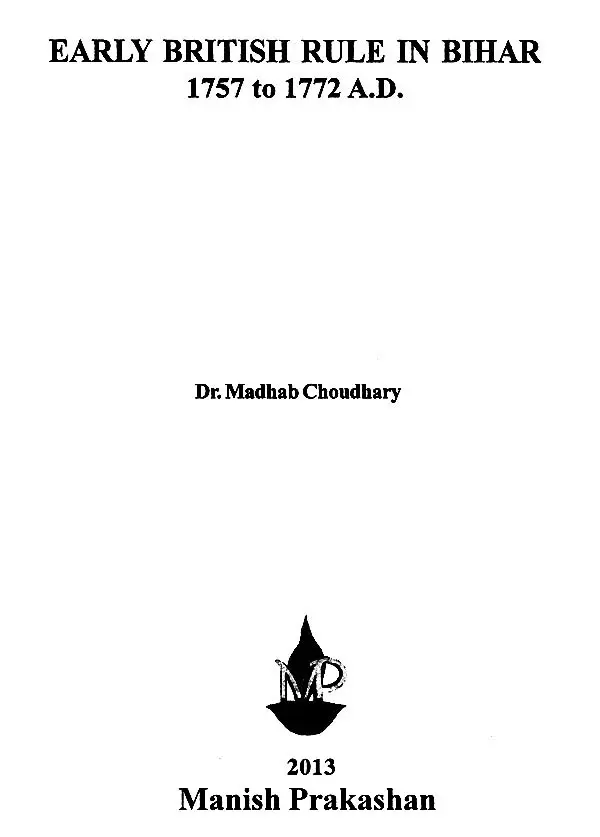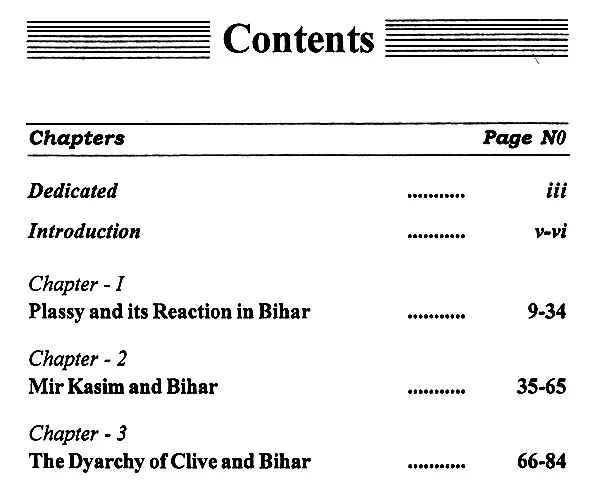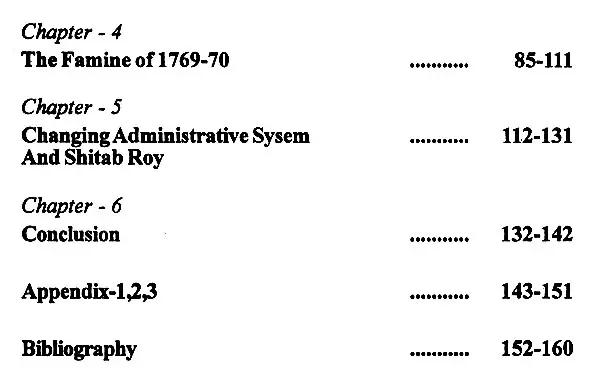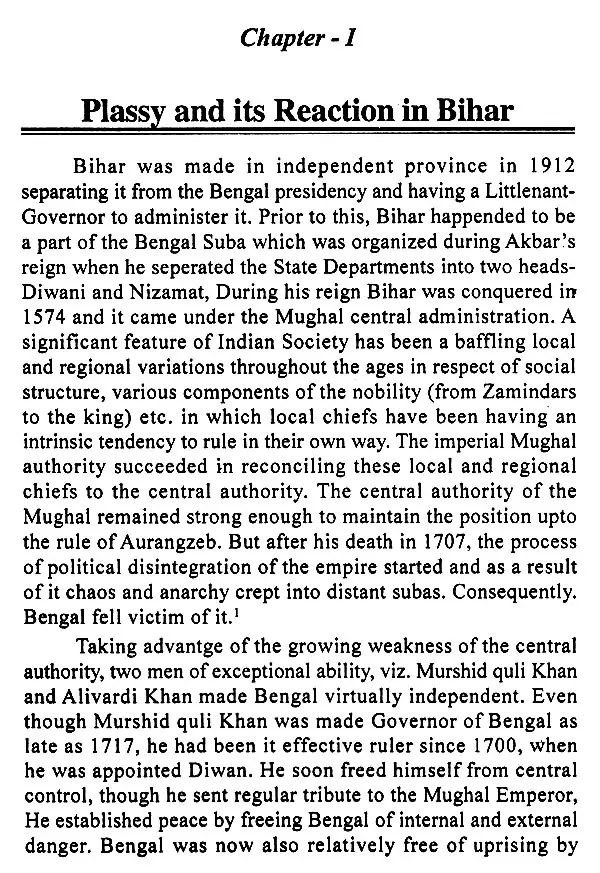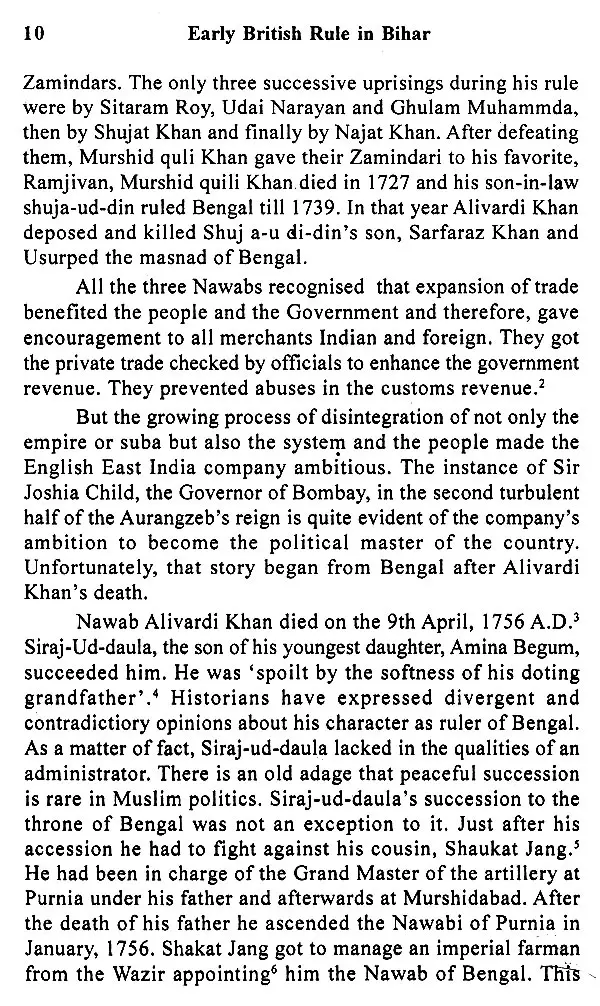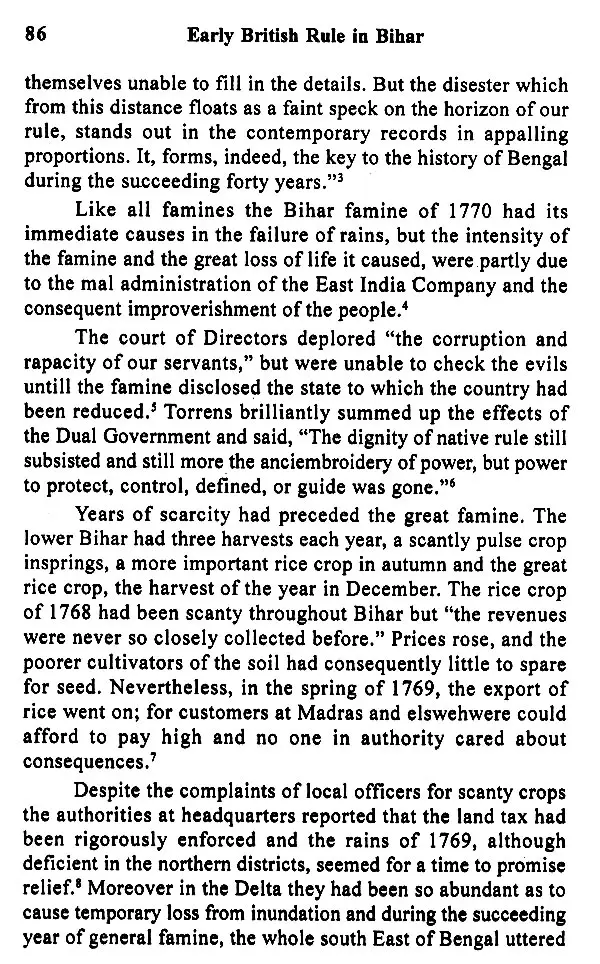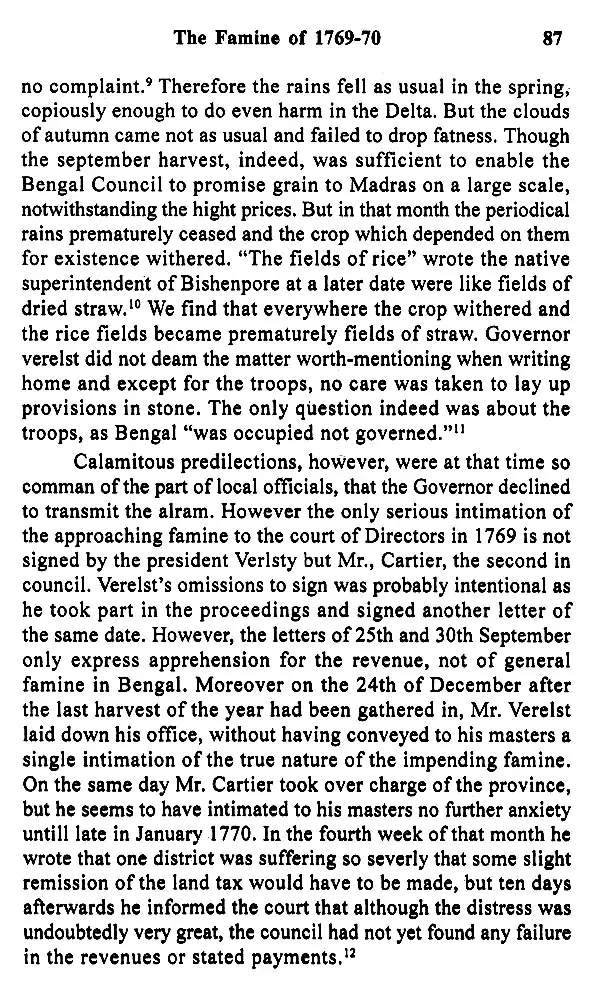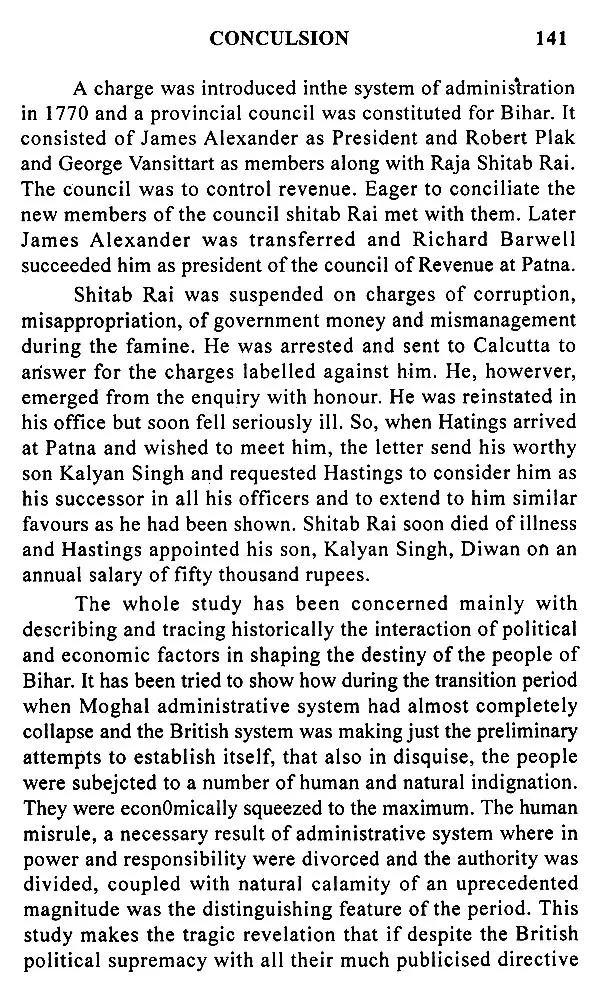
Early British Rule in Bihar (1757 to 1775 A.D.)
Book Specification
| Item Code: | UAG173 |
| Author: | Madhab Choudhary |
| Publisher: | Manish Prakashan, Varanasi |
| Language: | English |
| Edition: | 2013 |
| ISBN: | 97893815399109 |
| Pages: | 160 |
| Cover: | HARDCOVER |
| Other Details | 9.00 X 6.00 inch |
| Weight | 310 gm |
Book Description
The present book deals in a comprehensive way about the political situation of Bihar after change of power in Bengal with the defeat of Siraj-ud-Dowla in the battle of plassey in the year 1757. The book focuses on the most crucial period of colonial rule (1757-1772) in Bihar.
This book has been divided into five chapters. The first chapter is in the nature of an introduction. Here a clear picture is provided in connection with the establishment of the British power in Bengal and its impacts on the Bihar. The chapter two is a surveys the role of Mir Qasim with reference to Bihar. Here the Author has traced the impacts of the Revolution of 1760 on the administration of Bihar. In chapter three the Author had portrayed an elaborate picture of Bihar administration in the days of Dyarchy. This chapter is also marked by clarity of vision. Chapter four is a study of Famine of 1769-70 in Bihar. His investigation is deep and thorough. In chapter five author has presented a detailed analysis of the changing administration of Bihar and the role of shitab Roy. The person who played pivotal role in the politics of Bihar during Battle of Buxar, in the negiteation between the East-India Company officials and the Mughal emperor Shah Alam and Nawab of owdh Suja-ud-Dowla is Raja Shitab Roy.
This book would be of immense benefit to teachers, research scholars, students as well as the people interested in understanding politics of Bihar during East India Company rule up to 1772.
Madhab Choudhary is at present working as an Associate Professor, Deptt. of History, M.L.S.M. College, Darbhanga a Constituent unit of L. N. Mithila University. He holds a doctorate degree in Modern Indian History. His academic career is studded with several distinction. He has participated and presented research papers in many national Seminars. He has deep academic links with many associations working in the field of History. At present he is an executive member of MITHILA ITIHAS SANSTHAN, Darbhanga.
The present work entitled "Early British rule in Bihar" 1757 1772 A.D. is an attempt to explore the details of the early British rule in Bihar (alongwith Bengal and Orissa), which finally led to the establishment and fulfilment of British rule in India. As a matter of fact, the British policy of consequest and consolidation initiated from Bengal and by that time Bihar was one of the significant suba of Bengal presidency both economically and politically. It was not that the Bihar authorities such as Naib Diwan, landlords and Zamindars had been subdued to the British power and diplomacy so easily. They did not reconcile to the British victory at plassey but reacted shrotly. For more than fifteen years, the cross-currents of politics in Bihar, gives a clue of Patrotism, even in a narrower sense, among the local chiefs. But finally the British succeeded and paved the way for further conquests in west wards. The circle of British conquest almost completed in 1857 and India became an unilaterally profitable colony for the United Kingdom. The English squeezed our natural resources and man power to their selfish end to the last. Still our destiny and life-situation are worst affected by the foreign capital invested in the name of the modernization of the country. But it eats up our vitality and identity as a nation.
The book is consisted of five chapters. The first chapters deals with the succession of Sirajud-doula on the masnad of Bengal and the consequent conspiracy which led to the battle of plassey. Moreovr, the reaction of Ram Narayan and some of the Bhojpuria Zamindars are described elaborately in this chapter. The second chapters relates the story of 1760's change in Nawabship and growing difference between the New Nawab Mir Qasim and the English council of Calcutta. The third chapter deals with the infamous dual government of Clive and its disastrous effects on the people of Bihar. The foruth chapter is the logical consequence of the previous conditions. The Maladministration and oppressive nature of revenue collection under Dyrchy and unfavourable nature culminated in the terrible famine of 1769-70. The fifth and the last chapter describes the story of Shitab. Roy being summoned to Calcutta for rendering accounts to the East India Company's government. The enquiry against him conducted under the orders of the then English Government of Bengal, which revealed an embezzlement of Rs. 90 lakhs and his ultimate exoneration from all charges and reinstatement by warren Hastings. After these chapters there is a conclusion.
**Contents and Sample Pages**
